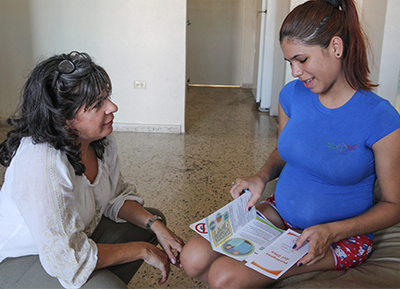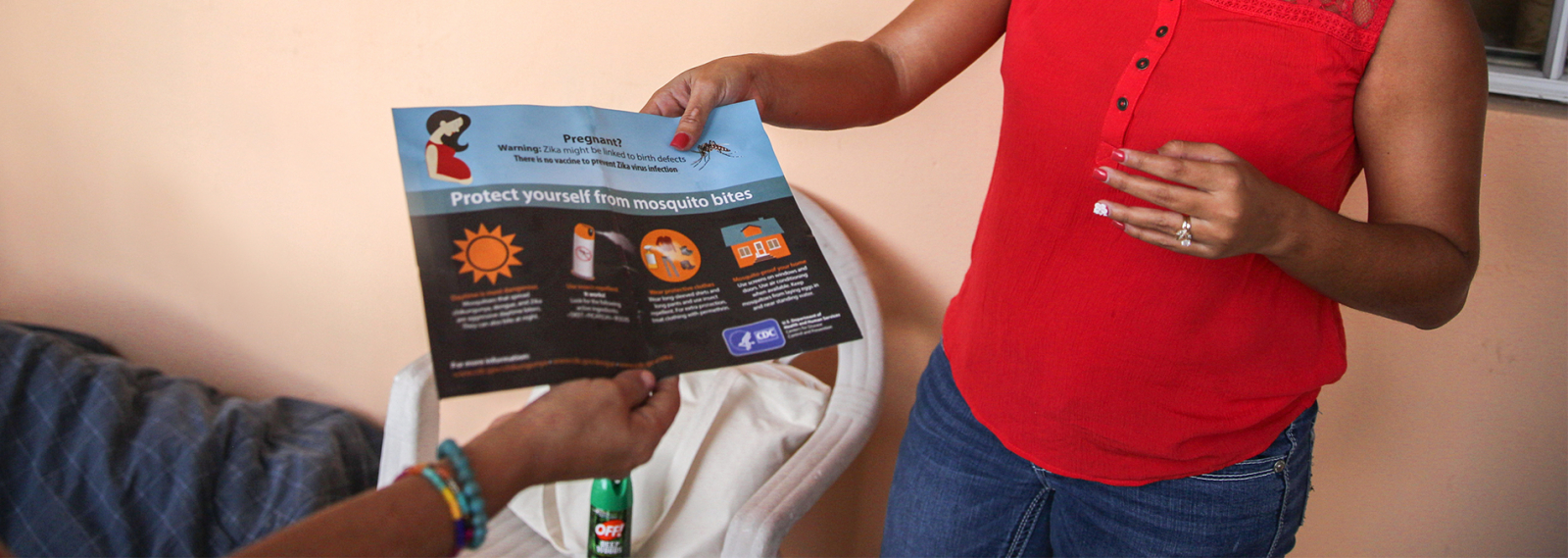ISSUE
Never before has a mosquito-borne virus been associated with a catastrophic birth defect or with sexual transmission. The effects of brain damage due to microcephaly and consequences of other Zika related birth defects are devastating, lifelong and costly.
WHY IT MATTERS
To protect women and their unborn babies, there are three key prevention strategies. One is preventing mosquito bites. Another is protecting pregnant women from sexual transmission of Zika. And lastly, an effective strategy to reduce Zika-related pregnancy complications is to prevent pregnancy by offering a range of reversible contraceptives to women who want to delay or avoid pregnancy during a Zika outbreak.
- Zika virus can be passed from a pregnant woman to her fetus.
- Infection during pregnancy can cause a birth defect called microcephaly and other severe fetal brain defects.
- Zika primarily spreads through infected mosquitoes. Zika can also spread through sex without a condom with someone infected by Zika, even if that person does not show symptoms of Zika.
- There is no vaccine to prevent or medicine to treat Zika.
SOLUTION AND IMPACT
Bridging Gaps, Protecting Pregnant Women

The CDC Foundation undertook a number of efforts to address Zika in U.S. territories during the height of the Zika outbreak in 2016–17. One of these efforts included developing Zika Prevention Kits to inform pregnant women about Zika virus, its risks, and how to avoid infection, while providing an initial supply of prevention tools. The CDC Foundation working with partners also developed and launched a Zika risk communications campaign in Puerto Rico with some extension into other territories.
Another critical programmatic effort to prevent Zika-related birth defects was the 2016 establishment and launch of the Zika Contraception Access Network (Z-CAN), which was developed by the CDC Foundation with technical leadership from CDC and partners in Puerto Rico. The island-wide network of trained OB/GYNs and other physician providers, family planning clinics and community health centers provided women who chose to avoid or delay pregnancy with access to client-centered contraceptive counseling and a full range of reversible contraceptive methods.
For the first time in Puerto Rico women had access to highly-effective, free reversible contraception on the same day of their medical visits. More than 160 providers and an estimated 28,000 women benefited from this program. Learn more about the Z-CAN program.

